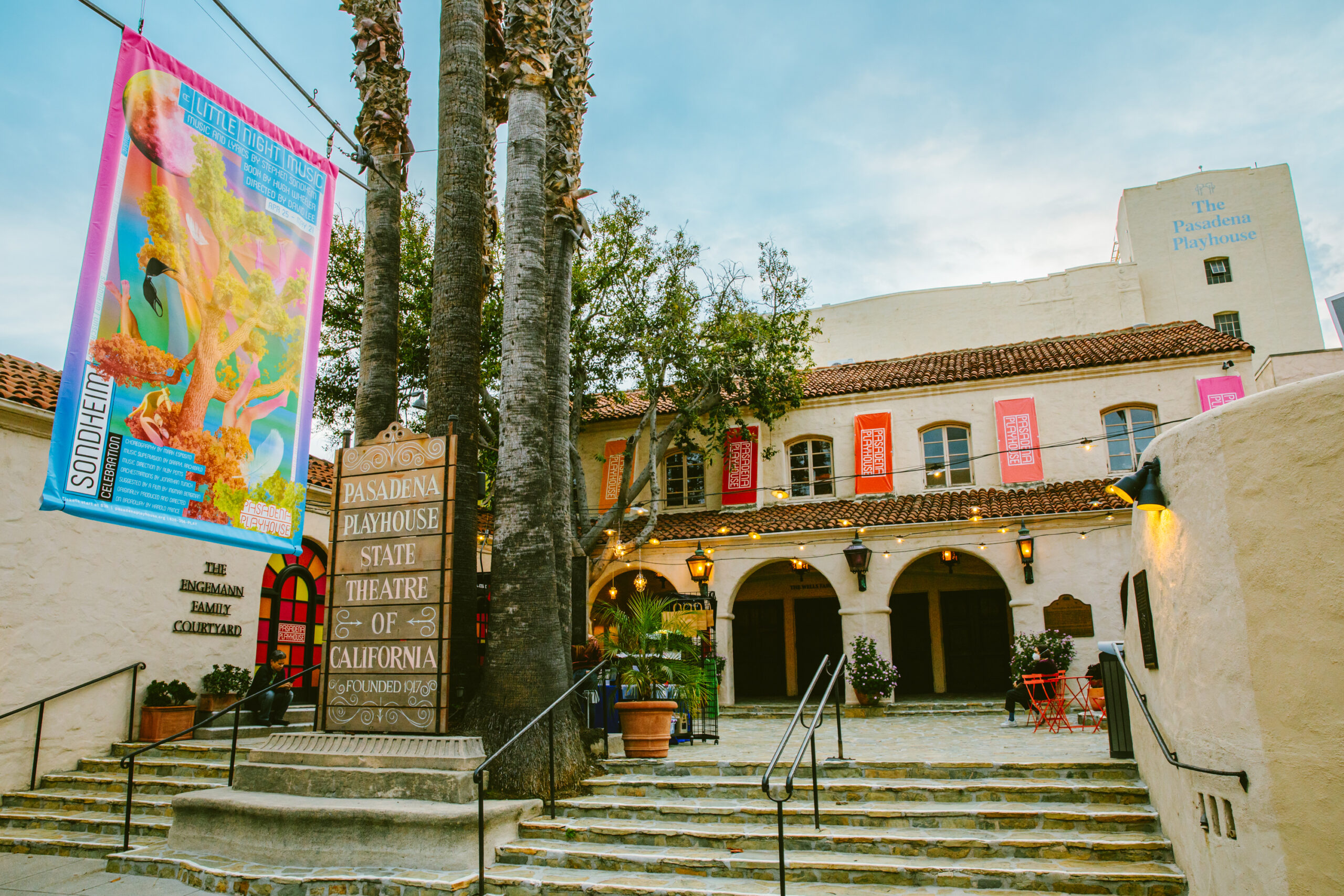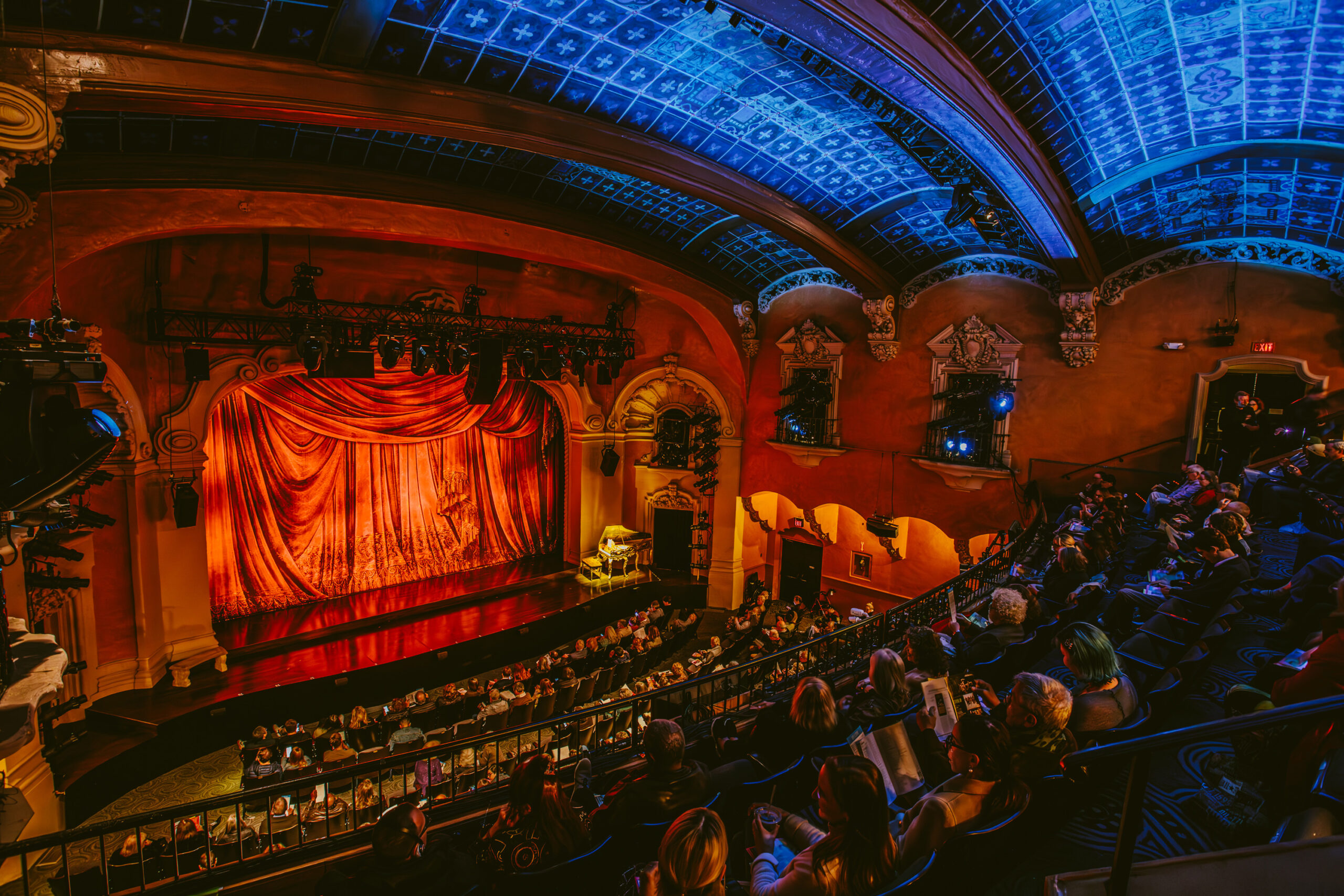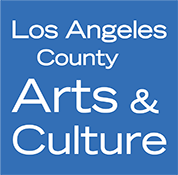Pasadena Playhouse, the official State Theater of California and recipient of the 2023 Regional Theatre Tony Award, is internationally recognized for its significant role in the development of American theater. One of the most prolific theaters in the country, the Playhouse has staged thousands of original productions since its founding in 1917 including premieres of works by Tennessee Williams, Eugene O’Neill, Suzan-Lori Parks and hundreds more. For decades, its pioneering School for Theater Arts was a training ground for actors and theatermakers who went on to make significant contributions to the entertainment industry. Under the leadership of Producing Artistic Director Danny Feldman since 2016, Pasadena Playhouse’s productions and community programs are centered on its founding idea of being a living force in its community, making theater for everyone. Today, the Playhouse continues to advance the American theater and serves as a hub for the top theatermakers of our time.
The Founding

First sharing performance space in a burlesque house, the Pasadena Community Playhouse was founded in 1917 by theater impresario Gilmor Brown. Galvanizing a community largely made up of wealthy easterners, Brown raised money from over 1,000 citizens in Pasadena to purchase land at 39 S. El Molino and in 1925 the current landmarked theater opened its doors with national fanfare. Under Brown, The Pasadena Playhouse became internationally known and at one time, with a campus that took up almost a full square block, five stages, a scene shop and a college, was one of the largest theater complexes in the world. Brown tried and created concepts in Pasadena that have become theatrical norms globally, including the enormously impactful “theatre-in-the-round” staging technique. Because of Brown’s audacity in producing the entire Shakespeare canon, a feat no other theater in America could claim, the state legislature unanimously voted The Pasadena Playhouse the official state theater of California in 1937, a mere 20 years after its founding. Under Brown’s leadership, The Playhouse grew from a small troupe of players to a center for artistic innovation and activity, becoming a veritable talent funnel for the radio, television and film industry explosion that occurred in Los Angeles during the 30’s, 40’s and 50’s.
Star Factory

During its “golden era” between 1920-1945, the Playhouse was dubbed the “Star Factory” due to the number of celebrities who were discovered on its stages. Each of the major film studios, which were themselves young upstart companies at the time, had scouts assigned to cover all the Playhouse productions. When the industry was transitioning from silent film to “talkies”, the studios had contracts with the Playhouse for their silent film stars to be taught voice and diction. While Brown’s clairvoyance for talent led to the discovery of many notable actors, it also led to the development of playwrights, directors, and eventual entertainment industry giants who went on to establish the Los Angeles empire of film and television we know today.
Outside of showcasing talent, the Playhouse trail blazed techniques in radio, broadcasting live nationwide from the mainstage, and experimented with early television, establishing the first west coast T.V. station.
The College

At no time in its history was there more energy around The Playhouse than during the forty-plus years when the education of actors, directors, designers, technicians and playwrights took place at The Playhouse School of Theatre Arts (later College of Theatre Arts). Started in 1927, the college expanded quickly as young performers enrolled from across the country and hoped to break into the budding motion picture industry. Eventually, considered second only in the country to Julliard, the college grew to 300 students, employed 3 dozen faculty, created a unique nexus of education and professional productions, and provided a pipeline of talent to the growing entertainment industry.
With degree programs in acting, directing, stage technology, playwriting, and theater administration, its three-year accredited training program offered BFA and MFA degrees and was housed in a literal “ivory tower” built in 1937 on the northwest side of the campus. The Playhouse college became one of the first schools in the nation to offer training and classes in “stage, screen, radio, and television”. The school produced hundreds of student performances each year on two dedicated stages, and students were also assigned to work on various aspects of the Mainstage productions, including performance and design opportunities in the professional shows.
The impact of the Playhouse’s College of Dramatic of Arts cannot be understated. Its conservatory degree program was the pedagogical genesis of contemporary graduate level dramatic arts programs.
Going Dark

In 1960 Gilmor Brown died and the Playhouse experienced classic founder’s succession issues, suffering from a lack of leadership and direction in the years after his death. As other competing theaters in Los Angeles grew in popularity, particularly those at today’s Center Theatre Group in downtown Los Angeles, many traditional patrons to the Playhouse were looking for a new and more cosmopolitan experience. They began to cancel their subscriptions at the Playhouse for other options.
Likewise, when the local drama departments of USC and UCLA formed, the Playhouse college began to lose enrollment as students opted for the broader university experience. The College eventually closed in 1969, the same year the theater itself was shuttered and claimed bankruptcy.
Because of prescient and ardent preservationists, almost all of the theater’s archives, which included Gilmor Brown’s papers, production designs and histories, clippings, art, photographs, film and various other theater memorabilia, were saved from auction and guarded in various private and public locations around Pasadena. Over the ensuing years, most of it was gathered and donated to the Huntington Library where the collection is held and believed to be one of largest American regional theater collections in the nation.
During the 16 years during which the Pasadena Playhouse was dark, important work was being done to ensure its future. The Friends of the Pasadena Playhouse, a volunteer support group that has grown to 400, formed and was instrumental and securing the building’s California State Landmark status, saving it forever from the wrecking ball. After a succession of real estate transactions, the Playhouse was finally reopened in 1986 as a non-for-profit LORT B theater.
Rising Up

Entrepreneur and developer, David Houk, helped to successfully reopen and renovate the Playhouse, as well as create the Playhouse District itself, an area of retail and shopping that is now bustling around its namesake establishment. By the early 90’s and the Playhouse’s 75th anniversary in 1992, the theater enjoyed a thriving subscriber base of over 24,000 patrons from 327 zip codes and produced eight shows per year. In 1997, Sheldon Epps was named artistic director and became the first artistic director of color at a major Southern California theater. In a tenure that would last 20 years, the period under Epps direction would result in the theater becoming well known for its emphasis on diverse content and casting, new musicals, and growth in the areas of education and new play development.
The Carrie Hamilton Theater, named after the late daughter of Carol Burnett, opened in 2006, giving the Playhouse a second space that was quickly utilized as a place for rehearsals, readings, short experimental productions and theaters-in-residence. The 99-seat theater eventually hosted the Furious Theater Company for several seasons. Furious produced more cutting-edge work and drew a younger audience.
For the past two decades, the Pasadena Playhouse has staged several hit shows that went on to Broadway acclaim, including Baby, It’s You, Sister Act, and Purlie, and is known for producing multi-ethnic programming with a strong emphasis on diversity. Through programs that helped to bring students to the theater as well as groups who might not have the opportunity to attend a live theatrical event, community outreach and arts education are pillars of the Playhouse’s mission. The theater has also found great success through co-productions. From local theater companies like South Coast Repertory and Deaf West Theater, to New Jersey’s Crossroads Theatre Company, collaborations have brought bigger or more interesting productions to Pasadena. The holiday favorite, “Panto at the Playhouse” was first created at the Pasadena Playhouse in partnership with Lythgoe Family Productions and has gone on to be replicated at several regional theaters in Southern California.
In 2016, Sheldon Epps announced his tenure would end at the Playhouse and a new artistic director, Danny Feldman, hailing from New York’s Labyrinth Theatre Company, was named on the eve of the theater’s Centennial.
A Los Angeles native, Feldman joined the theater by way of a successful New York career on the eve of the Playhouse’s Centennial Anniversary. With a vision of returning the Playhouse to its roots as a community-centric theater company the Playhouse has undergone yet another renaissance.
The Next Century

Since he began, Feldman has continued moving the Playhouse forward with an eye toward the future, while honoring the past and rectifying the theater’s longstanding financial issues. The Playhouse has reclaimed and redefined the honorary title of the State Theater of California. The productions on stage reflect the diversity of the population and perspective of the great state, including the groundbreaking production of Little Shop of Horrors, featuring George Salazar and Mj Rodriguez. Innovation is at the forefront of programming, with the exploration of new theatrical models including the current six-month celebration of Stephen Sondheim created by thousands of professional and nonprofessional theatermakers who have come together to honor a giant’s legacy. Guided by the idea of making theater for everyone, the stories told on the Playhouse stage belong to the community, and the community has access to be in the audience.
Now, one of the oldest theater complexes in the country, the Pasadena Playhouse historic theater will celebrate its 100th anniversary in 2025. With an eye toward the future, the Playhouse will continue to lead the field with artistic excellence and quality, grow its educational opportunities for everyone, expand its family programming to develop future audiences, and secure funding to modernize the historical building and ensure its future. With the support of the community to which the Playhouse belongs, it will continue to be a beacon of innovation, excellence, and extraordinary storytelling. The Playhouse will continue to be an organization that makes theater for everyone.
By The Numbers

The Playhouse is one of the most prolific drama-producing organizations in the history of American theater, having commissioned over 550 new works, produced upwards of 1,200 shows, spearheaded over 500 world premieres, developed several shows that went on to Broadway, and welcomed one million audience members. For a time, it had five active theaters producing simultaneously, road tours, stock companies, radio and television studios, and a fully accredited college. In its history, more than 30,000 students have received arts education and access programs, and it has been the recipient of well over a million hours of service by more than 12,000 volunteers.
Leadership
Danny Feldman
Producing Artistic Director
Justin Glasson
Chief Development Officer
Jacquelyn Myers
Chief Financial Officer
Jenny Slattery
Associate Producer
Rachyl Spacca
Chief Marketing & Communications Officer
Sheldon Epps
Artistic Director Emeritus
Board Leadership
Erin Baker
Chair
Julie A. Gutierrez
Vice Chair
Bonnie Wongtrakool
Treasurer
Leigh T. Olivar
Secretary
BOARD OF TRUSTEES
Erin Baker
Sheri Ball
MaryLou Boone
Melanie Caldwell-Holden
Dennis Cornell
Brandon Dickerson
Peggy Ebright
Danny Feldman
Beth Fernandez (Friends of the Pasadena Playhouse Seat)
Julie A. Gutierrez
Cristina Hernandez
Y-Vonne Hutchinson
Jane Kaczmarek
Brad King
Harmon A. Kong
Brandon Levin
Jim McCarthy
Ken McCormick
Alfred Molina
Leigh T. Olivar
Bingo Roncelli
Jeff Smith
Ann Sunshine
Patty Barajas Tavera
Bernhard von Thaden
Bonnie Wongtrakool
Chair Emeriti
David M. Davis
Michele Dedeaux Engemann
David DiCristofaro
Sheila Grether-Marion
Albert Lowe
Kerry McCluggage
Margaret Sedenquist
Board Members Emeriti
Carol Burnett
Ralph Hirschmann
Frank Kleeman
Dennis Lowe
Tad Lowrey
Rao Makineni
Kathy Arntzen Roat
Anne Rothenberg
Lyn Spector
Eliot Stahler
Greg Stone
Leslie Tolan
Martha Williamson
In Memoriam
David Angell
Theodore Fitch Behr
Betty Ann Koen Brooks
Roger Stangeland
James Watterson
Get Involved
Volunteer To Usher!
Pasadena Playhouse is seeking volunteer ushers ages 16+ to join our team! Ushers play an integral role in the care, comfort and safety of all patrons who visit Pasadena Playhouse and are responsible for welcoming, seating and accommodating audience members.
Friends of the Pasadena Playhouse
The Friends are one of the core volunteer groups and serve as theater docents and ushers for the thousands of audience members who come each year.
The Ambassadors of Pasadena Playhouse
The Ambassadors work to engage both new and current supporters of Pasadena Playhouse.
Pasadena Playhouse Alumni & Associates
With over 400 members the Alumni & Associates continues to be an active part of Pasadena Playhouse.
Employment

Casting

Rentals
RENTALS
Pasadena Playhouse is available to rent for events, filming, rehearsals, and blackbox productions.
Email rentals@pasadenaplayhouse.org for Rental Inquiries.
Contact
Patron Services
626 356 7529
Administration














